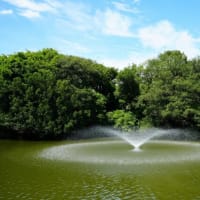The following is from Mr. Sekihei's serial column, which appeared on the front page of the monthly magazine Hanada on the 26th.
This article is also a must-read not only for Japanese citizens but also for people around the world.
Japanese Prime Ministers Devoted to "Serving China"
In the previous issue, I recounted how Japan has helped "China as a threat" politically and economically in the decades since the establishment of diplomatic relations between Japan and China.
In this painful history, there have, in fact, been "strenuous efforts" by successive Japanese prime ministers.
One of them was Masayoshi Ohira. He was the one who decided on ODA (Official Development Assistance) for China.
In the early 1980s, Ohira, Prime Minister of Japan, overcame all obstacles and decided to start ODA in China.
At the time, there was strong opposition within the Liberal Democratic Party (LDP) to the idea of launching ODA to China, which was being discussed within the Ministry of Foreign Affairs, and Western countries were also reportedly reluctant to do so.
At that time, however, Prime Minister Masayoshi Ohira suppressed opposition within his party and, ignoring all objections from the West, made the decision to "ODA to China," which he carried out.
Compared to his contemporaries, such as Tanaka Kakuei, Ohira Masayoshi was by no means a decisive politician.
He was even mocked as a "dumb ox prime minister."
However, when it came to China's national interest, he made a "brilliant decision" with the determination and spirit to "go it alone.
Next is Toshiki Kaifu, who, one year after the Tiananmen Square protests in June 1989, announced the resumption of ODA to China in July 1990, even as Japan and other Western industrialized countries simultaneously imposed economic sanctions against China.
Japan was one of the first developed countries to lift economic sanctions against China, greatly assisting the Chinese Communist Party government in its difficult situation.
When the G7 Summit was held in Houston, U.S., in July 1990, Japanese Prime Minister Kaifu persuaded the Western powers to change their policy toward China.
Both at the meeting and at the press conference following the meeting, he said, "We must not isolate China. Let us resume relations and economic assistance to China."
In response, French President Mitterrand nailed him, saying, "China has a human rights problem," but Kaifu was not concerned.
At last, at a summit meeting with the U.S. president, he announced the resumption of ODA to China.
"A light palanquin that is easy to carry."
This ultra-lightweight prime minister, ridiculed by Ichiro Ozawa, has probably never shown much leadership in politics for the Japanese people, but he has shown admirable leadership for China's national interests.
Would it be an exaggeration to say that he became the prime minister of Japan because of the Chinese Communist Party?
Another Japanese prime minister who did his part for China was Hashimoto Ryutaro, also known as Hashiryu.
In the previous issue of this column, we discussed how China's accession to the WTO in 2001 was a decisive step on the road to economic superpowerhood for this communist superpower.
In this regard, Toshiya Tsugami, a former METI bureaucrat, wrote in his blog on June 3, 2009, "The late Prime Minister Hashimoto supported China's accession to the WTO."
"The late Prime Minister Hashimoto was enthusiastic about China's WTO accession negotiations. In 1997, he pushed the various ministries and agencies that were divided over whether or not to take a stance on promoting China's early accession (the United States was extremely reluctant). At the G7 summit, he explained the significance of early accession to the leaders of each country." On September 4, 2022, Keiko Yoshioka, an editorial committee member of the Asahi Shimbun, also wrote a related article on the Asahi Shimbun official website.
According to the article, at the June 1996 G7 meeting held in Lyon, France, Hashimoto enthusiastically stressed the importance of China's early accession to the WTO, including in individual meetings with Western leaders.
In other words, the Japanese prime minister's participation in the G7 is not for Japan but for China, and he is devoted to lobbying for China.
It is no exaggeration to say that Ryutaro Hashimoto was not the prime minister of Japan but simply a proxy for the Chinese government, a "dog" of the Chinese Communist Party regime.
Of course, these three individuals were not the only "dogs of China.
In 1992, Kiichi Miyazawa, the then-prime minister, decided to have the Emperor of Japan visit China in connivance with the Chinese Communist regime.
This decision contributed significantly to China's emergence from international isolation after the Tiananmen Square incident.
Or Yasuo Fukuda.
He was the one who offered Japan's resources to China under the guise of "joint development of gas fields in the East China Sea." After stepping down as prime minister, he openly visited the "Nanjing Massacre Memorial Museum" and was complicit in China's false and dishonest anti-Japan activities.
It is a "miracle" in the history of Japan-China relations, or instead in the history of international relations, that the Japanese who have served as prime ministers of Japan have served China with such zeal and contributed to promoting China's national interests.
As a result, an increasingly assertive China now poses the greatest threat to Japan.
The people of Japan should take this great lesson of history to heart.

2024/6/26 in Osaka














